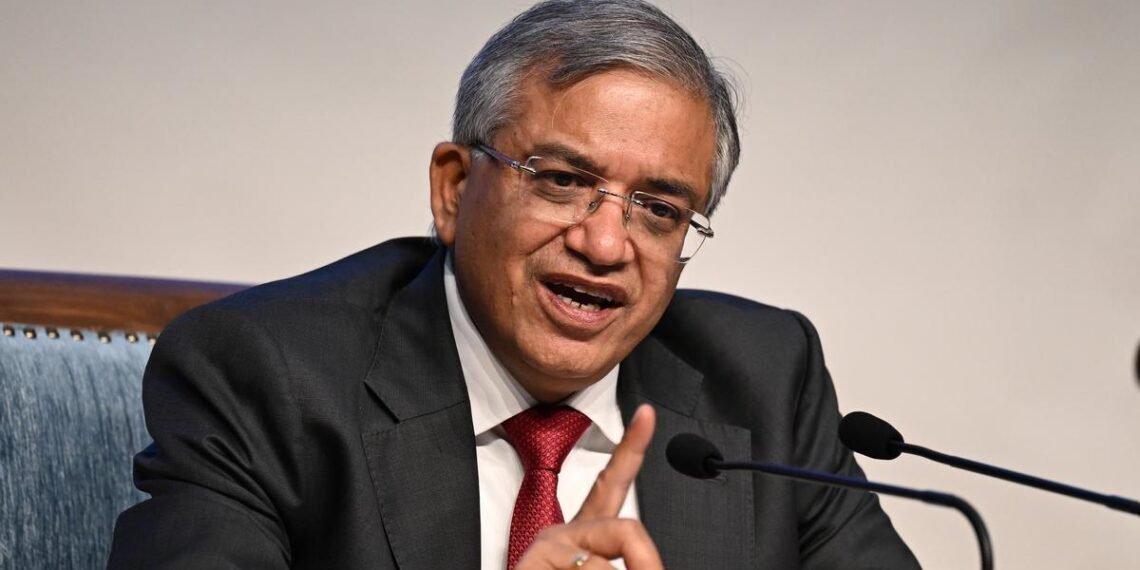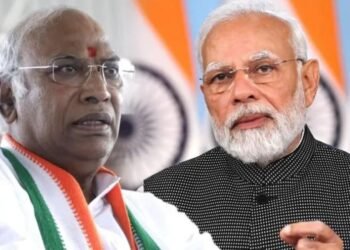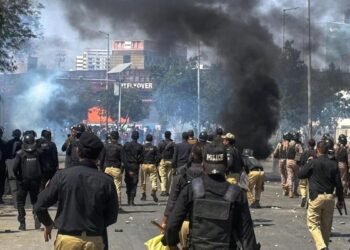Critics allege “selective enforcement” under Gyanesh Kumar’s watch. “The ECI has one yardstick for small states like Mizoram and another for politically sensitive heartland states,” said a former election observer.
BY Navin Upadhyay
November 10, 2025: The Election Commission of India’s (ECI) swift censure of Mizoram Chief Minister Lalduhoma for promising a ₹700-crore water project during a bypoll rally has reignited debate over the selective enforcement of the Model Code of Conduct (MCC).
Critics say that while the poll body under CEC Gyanesh kumar came down heavily on a relatively small northeastern state, it has chosen to “look the other way” as massive violations unfold in Bihar—where both ruling and opposition alliances have issued grandiose manifestos, distributed cash incentives, and openly invoked caste and religion in appeals to voters.
Mizoram’s Dampa Bypoll: Swift Censure over a Modest Project
In Mizoram, the ECI’s order was unequivocal: Lalduhoma’s October 20 speech at Reiek, where he promised the Tlawng River water supply scheme for 15 villages, turmeric processing units, and road upgrades, breached MCC Part IV, Paragraph (vi).
This clause forbids ministers from announcing new schemes or projects that could sway voters after the code’s activation.
Triggered by an MNF complaint backed by video proof, the ECI acted within two weeks—rejecting Lalduhoma’s defence of pre-approved projects and directing all 40 ZPM campaigners to refrain from inducements or communal remarks. His adviser, Dr. Lorrain Lalpekliana Chinzah, now faces a separate probe for distributing free medicines.
READ: ECI Censures Mizoram CM Lalduhoma for Bypoll Code Violation
READ: RK Singh’s Bombshell Against Adani: A Voice of Integrity That Demands Scrutiny
Bihar’s Grand Promises, Fiscal Fog, and Freebies
In sharp contrast, Bihar’s 243-seat battleground has seen the release of lavish, fiscally opaque manifestos after October 6, when the MCC came into force.
Cash disbursals of ₹10,000 to women under the NDA’s Mukhyamantri Mahila Rojgar Yojana continued on October 17, 24, and 31—even after the MCC came into force.
Opposition parties led by RJD MP Manoj Jha filed formal complaints alleging “mass inducement of voters,” but the ECI has yet to act.
The Mahagathbandhan’s Tejashwi Pran (Oct 28) and the NDA’s Sankalp Patra (Oct 31) each promise trillions in benefits—jobs for every family, cash stipends for women, paddy bonuses, expressways, free power, and medical insurance—without disclosing costings or funding plans, as required by the 2015 ECI guidelines on manifestos.
📦 MODEL CODE VIOLATIONS IN BIHAR 2025 ASSEMBLY POLLS
| Category | Nature of Violation | Relevant MCC Clause | Details / Examples |
| Caste & Communal Appeals | Political speeches and campaign material invoking caste pride, communal identity, and religious polarization. | General Conduct, Clauses I(1)–(3) | Rallies in Gaya, Siwan, and Purnea featured appeals to “Yadav pride,” “Hindu consolidation,” and contrasts between “forward” and “backward” castes. Temples and religious events reportedly used for propaganda. |
| Hate & Inflammatory Speech | Language intended to divide or incite tension between communities. | General Conduct, Clause I(1) | Union Minister Giriraj Singh, at an Oct 18 rally in Arwal, said he did not want votes from “namak haram” (betrayers), referring to Muslims. His remarks, widely circulated online, accused minorities of “ingratitude” despite government benefits. |
| Religious Symbolism in Campaigning | Use of religious figures, places, or sentiments to mobilize voters. | General Conduct, Clause I(3) | BJP candidate Maithili Thakur promised to rename Alinagar to Janaki Nagar if elected, invoking Goddess Sita. The NDA manifesto also pledged to develop Punaura Dham Janaki Mandir as a “world-class spiritual city.” |
| Financial Inducements / Cash Distribution | Continued transfers under state schemes post-MCC. | General Conduct, Clause I(4) | ₹10,000 paid to women under Mukhyamantri Mahila Rojgar Yojana after October 6. RJD accused of promising additional paddy bonuses to farmers. |
| Unviable Manifesto Promises | Populist pledges without fiscal explanation. | Manifesto Guidelines (2015), para 3(iii) | NDA’s “1 crore jobs” and “Lakhpati Didis” vs. RJD’s “1 job per family” and ₹2,500 pensions—all without funding details. |
| Misuse of State Machinery | Use of government transport or facilities for campaign purposes. | Party in Power, Clause VII(1) | Reports claim BJP arranged special trains from Haryana to ferry supporters to north Bihar rallies, allegedly with coordination from the Railways Ministry. |
Observers and opposition parties allege these cumulative violations—ranging from caste-based appeals to misuse of state infrastructure—represent “a systemic breakdown of MCC enforcement” in Bihar’s 2025 polls.
While the ECI acted swiftly in Mizoram’s Dampa bypoll, critics say it has failed to apply the same rigor in Bihar’s large-scale contest.
Guidelines Demand Fiscal Realism, Yet Populism Prevails
The Supreme Court’s S. Subramaniam Balaji (2013) judgment led to the ECI’s 2015 manifesto guidelines, which require political parties to explain the rationale and funding for each major promise.
These rules were designed to prevent “fiscally reckless populism” and ensure “purity of the electoral process.”
Yet both alliances in Bihar have sidestepped this mandate—offering benefits worth lakhs of crores without revenue disclosure. Experts warn that such “freebie warfare” risks undermining voter trust and weakening Article 324’s intent of fair elections.
Caste, Religion, and MCC’s General Conduct: A Forgotten Chapter
Across districts like Gaya, Purnea, and Siwan, campaign speeches have drawn sharp caste and communal lines—“Lalu ke samajwad vs. Modi ka Hindutva” becoming a recurring theme.
Temples, mosques, and religious icons have surfaced in campaign narratives despite MCC’s explicit bar on using places of worship for election propaganda.
Legal Gray Zone and Political Optics
While ECI officials defend differential treatment—saying manifestos are “aspirational documents”—constitutional experts call this a dangerous gray zone.
“Manifestos may be aspirational, but distributing cash or invoking religion clearly crosses the line,” said election law scholar Dr. G. Mohanty. “The Commission’s silence risks eroding public faith in its impartiality.”
A Question of Credibility
The ECI’s efficiency in Mizoram contrasts starkly with its restraint in Bihar, where over 650 cVIGIL complaints remain pending, including dozens on hate speech and inducements.
As the second phase of polling (Nov 11) nears, the Commission faces rising calls for consistency and transparency.
Legal experts and election observers alike argue that this episode highlights the need to give statutory force to the MCC—as recommended by the Law Commission in 2015—and to strengthen penalties for fiscal and communal violations.
If left unchecked, India’s poll referee risks being seen as a watchdog with two rulebooks—strict in the hills, lenient in the heartland.














